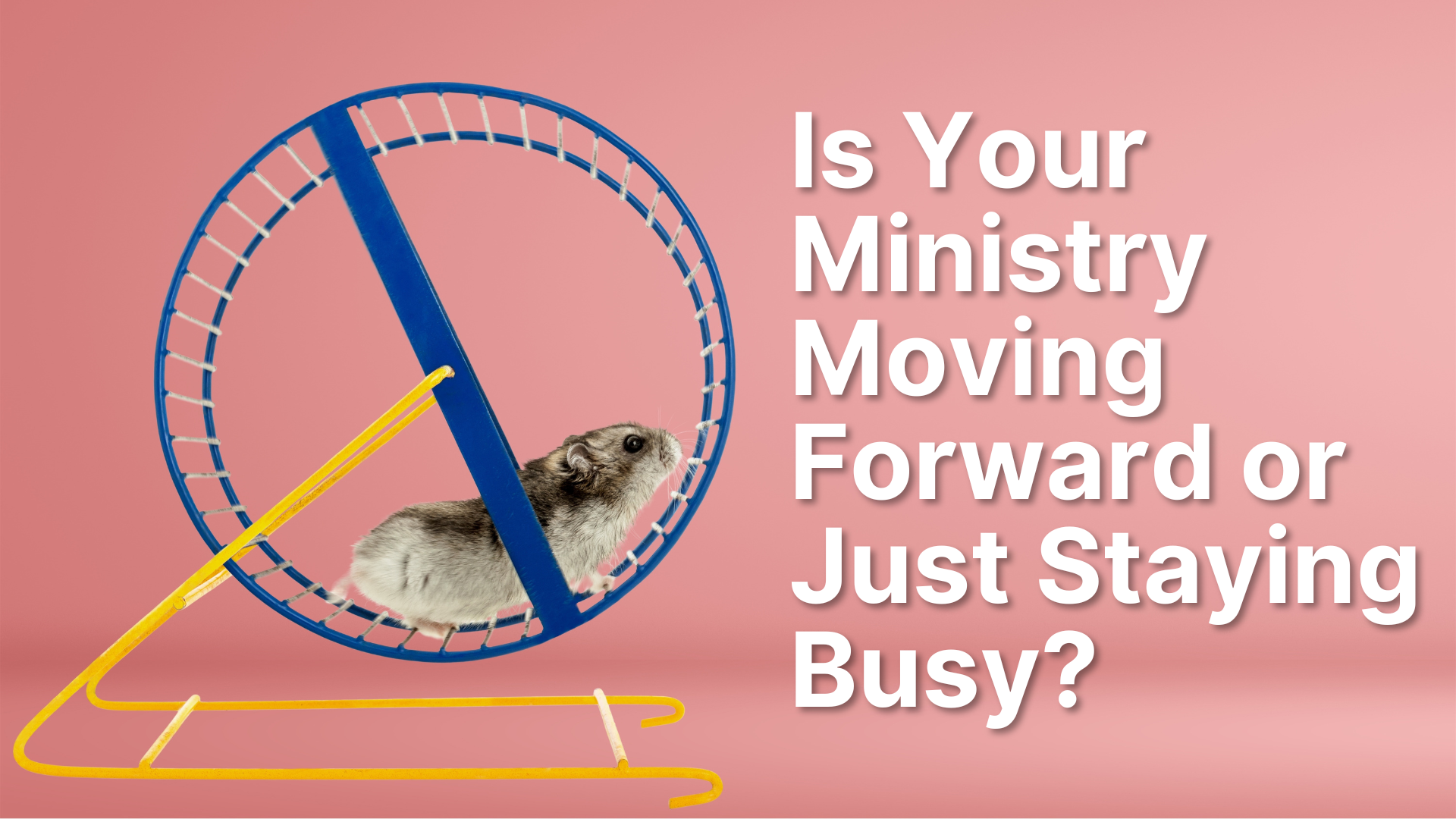3 Boundaries to Sustain Your Ministry
Ministry is tough. It can take all of you. I would argue working in ministry is extra hard compared to other professions. Ministry intertwines both our professional and personal lives.
Social Scientist say that we all need three places in our lives, our home, our work, and our social hangout.
For most Christians that social hangout is often the church. But we as ministers don’t have a third place because our work and our social hangout are the same. It gets even more complicated if you live in a parsonage on campus.
So, what do you do? How do you maintain a healthy work-life balance while also living out your calling? How do you not let ministry take over everything in your life and find that you’ve lost your friends, your family, and maybe even your faith?
As a pastor who’s been in ministry for over 17 years now, I know the struggle. I’ve lived through the days, weeks, and months, where I’m just going to bed to get up again. I’ve felt the pain where my kid begs for my attention while I give it to ministry. I’ve felt the tension of deciding where to give my time to and when to say no.
In order to sustain your time in ministry, you need to set boundaries. It’ll make some people mad. It’ll make others disappointed. But as I’ve talked about in this post, ministry should come behind your faith and family on your priority list. Setting the boundaries regardless of what other people think will help you keep all those priorities in check.
So, here are 3 boundaries I set to keep my priorities in check and stop ministry from taking over.
1. At 5, turn it off
Your job will always take as much as you give it, and ministry is no different. If you’re answering emails, taking calls, sending texts, or creating content after office hours you’re letting ministry take over.
Now, I’m not saying you never do those things. Pastoral care never respects the 9 to 5. It’s your job to be there.
But there are other times, rather, most of the time when that one last task can wait until tomorrow. We are talking about eternity, but we’re not talking life and death. It can wait.
I have a bad habit of getting involved in a project and wanting to see it all the way through. I say it’s bad because I start these projects at 4 when I’m supposed to be heading home at 5. But 5 becomes 5:30, then 6, then later.
I know it’s bad when my wife calls asks when I’m coming home.
So, I set a daily alarm on my phone that says Go Home. I’ll admit, sometimes I hit snooze, but more often than not, I close my laptop, get up, and walk out the door. Whatever I was doing can wait until tomorrow.
Because I do this, when the exception comes and I need to stay later, it is just that, an exception. Your church people need you. But your family needs you more. Your church can find another pastor. Your family can’t find another mom or husband.
So, give your family your time and attention, it’ll pay off way more than sending that one last email.
2. Take a Sabbath
I always get the weirdest looks when I tell people I work weekends. Most people don’t put ministry in that category, but it’s true.
Sundays are our biggest days of the week. I memorize my months by Sunday’s dates. It’s far easier for me to join a gathering on Thursday than Sunday afternoon. That’s just part of the job.
The problem is that culture says Sunday is a day off. So going into ministry we try to treat it like that. But we can’t. We have to find another day to observe a sabbath.
Early in my career, I made the mistake of using my “off day” as another day to get extra stuff done. People weren’t in the office, so I could focus. It was also on Monday, so I could get a jump start on the week before all the demands of ministry kicked in.
Working 7 days a week, never taking a day off, became a major problem. I’d work late every day. My only respite was a Sunday afternoon nap where I’d collapse in exhaustion.
As a result, I burnt out in 3 months. In my healing journey, God showed me the value of taking sabbath. I then added the discipline to my life. And after nearly 20 years of observation, I can say my life is so much better and healthier.
My Sabbath day has changed over the years. It’s been Monday, Friday, and when I was bi-vocational, Saturday. This is a day where I do household chores, spend time with family, and just be me.
It’s hard at first. And to be honest there are times I break it like I break the 5pm rule. But those are exceptions, and I try to make up that time other times throughout the week.
Even if you’re bi-vocational, It’s possible. I taught high school math for 18 months while also working at a church as an executive pastor. It was hard. My 5pm rule didn’t work, but I kept my Sabbath. I disappointed some people, but my faith, my family, and my health were worth it.
Yours is too.
3. Find other interests
As I said in the beginning of this post, we in ministry are missing our third place. So, we need to make one. The hard part is that a lot of times we try to turn our hobbies into ministry opportunities.
We join a gym and want to evangelize everyone there. We start golfing or crocheting and want to use it as a small group. We learn new skills like writing or photography, and next thing we know we’re now in charge of church marketing.
None of these are bad things. But you need to find things that aren’t church related. Something where you can just be you. Where people don’t know you as Pastor so and so. Where people have no idea who you are and don’t really care.
For me it’s running and video games. I’m not trying to create a running small group or stream a Christian gaming session. (I’ve done both before.) I’m just living my life and doing what I love to do.
What are some things you love to do that have nothing to do with your ministry work?
Create space and time to do those things. Do them after 5 or on your Sabbath. Say no to ministry work, so you can say yes to these. You’ll have a fuller and richer life for it.
We follow Jesus with all our lives. But as a professional Christian it’s too easy to fall into doing the work of the ministry and forget about your relationships. Setting boundaries keeps your priorities aligned. You may need to misalign them from time to time but let those be the exceptions not the rule.
Once you do, you’ll find you can sustain your time in ministry far longer and reap the rewards of a life well lived in the service of our Lord Jesus.













